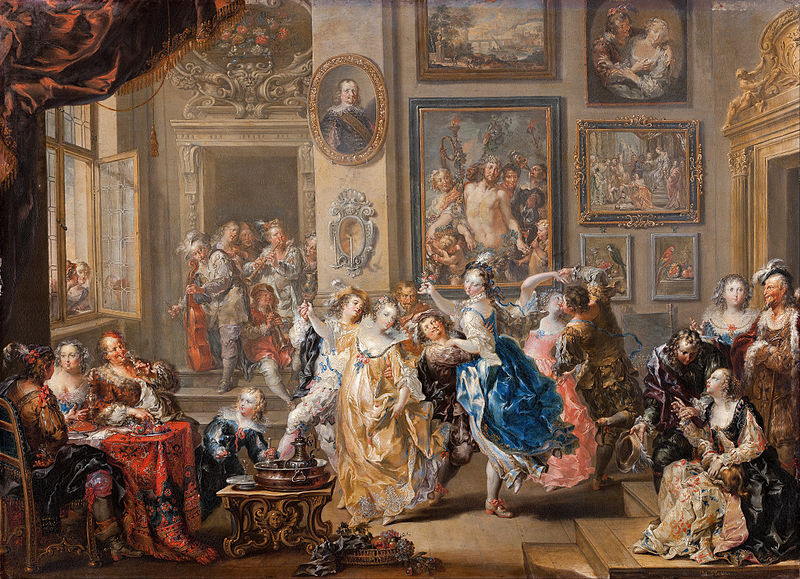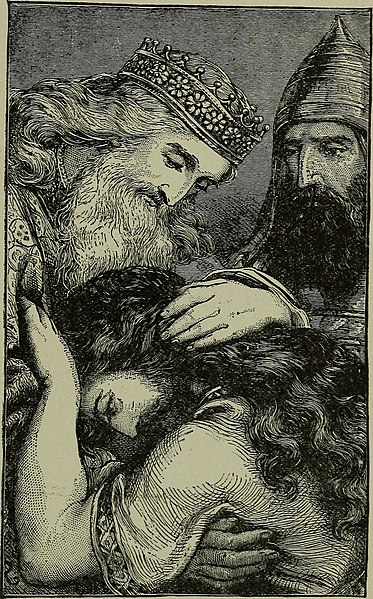Though the Tanakh is a Jewish book, it is remarkable that it begins, not in Genesis 12, with the story of Abraham, but with creation of the world and all mankind. In this way, it is different than other ancient writings because it does not start with its own people. Later in the Tanakh, the relationship between the descendants of Abraham (the Israelites/Jews) and the other nations are developed. But what can we learn from the Tanakh that is common to all mankind? Can we use the Bible to understand where mankind comes from? Many say ‘no’, but there is much about us that makes sense in the light of what the Bible says. For example, consider what the Bible teaches about mankind’s beginnings. In the first chapter it says
Then God said, “Let us make man in our image, in our likeness…” So God created man in his own image, in the image of God he created him; male and female he created them.” (Genesis 1:26-27)
“In the Image of G-d”

What does it mean that mankind was created ‘in the image of G-d’? It does not mean that the Lord, Blessed be He, has two arms and a head. Rather it is saying that our basic characteristics come from Him. In the Bible G-d can be sad, hurt, angry or joyful – the same emotions that we have. We make choices and decisions every day. G-d also makes choices and decisions too. We can think and G-d does also. Being ‘made in the image of G-d’ means that we have mind, emotions and will because G-d has mind, emotions and will and He created us to be like him in these ways. He is the source of what we find in us.
We are self-aware and conscious of ‘I’ and ‘you’. We are not impersonal ‘its’. We are like this because The Lord G-d, blessed be He, is this way. The G-d of the Bible is not a non-personality like the ‘Force’ in the movie series Star Wars and neither are we because we are made in His image.
Why do we like beauty?

We also value art, drama and beauty. We need beauty in our surroundings, music and books. Music enriches our lives and makes us dance. We love good stories because stories have heroes, villains, drama, and the great stories put these heroes, villains and drama into our imaginations. We use art in its many forms to entertain, relax and refresh ourselves because G-d is an Artist and we are in his image. It is a question worth asking: Why do we look for beauty in art, drama, music, dance, nature or literature? Daniel Dennett, an outspoken atheist and an authority on understanding the brain, answers from a non-Bible perspective:
“But most of this research still takes music for granted. It seldom asks: Why does music exist? There is a short answer, and it is true, so far as it goes: it exists because we love it and hence we keep bringing more of it into existence. But why do we love it? Because we find that it is beautiful. But why is it beautiful to us? This is a perfectly good biological question, but it does not yet have a good answer.”
Daniel Dennett. Breaking the Spell: Religion as a Natural Phenomenon. p. 43
Apart from G-d there is no clear answer to why all the forms of art are so important to us. From the Bible’s point-of-view it is because G-d made things beautiful and enjoys beauty. We, made in His image, are the same. This Biblical teaching makes sense of our love of art.
Why we are Moral?
Being ‘made in G-d’s image’ explains our moral capability. We understand what ‘wrong’ behaviour is and what ‘good’ behaviour is – even though human languages and cultures are very different. Moral reasoning is ‘in’ us. As the famous atheist Richard Dawkins puts it:
“Driving our moral judgments is a universal moral grammar … As with language, the principles that make up our moral grammar fly beneath the radar of our awareness” (Richard Dawkins, The God Delusion. p. 223)
Dawkins explains that our awareness of right and wrong is built into us like our ability to have language, but it is difficult for him to explain why we have this from only physical sources. Misunderstandings happen when we do not acknowledge G-d as giving us our moral compass. Take for example this objection from another famous Jewish atheist Sam Harris.
“If you are right to believe that religious faith offers the only real basis for morality, then atheists should be less moral than believers.” (Sam Harris. 2005. Letter to a Christian Nation p.38-39)
Harris misunderstands. Biblically speaking, our sense of morality comes from being made in G-d’s image, not from being religious. And that is why atheists, like all the rest of us, have this moral sense and can act morally. Atheists do not understand why we are like this.
Why are we so Relational?

Biblically, the starting point to understanding ourselves is to recognize that we are made in G-d’s image. It is not hard to notice the importance people place on relationships. It is OK to see a good movie, but it is much better to see it with a friend. We naturally seek out friends and family to share experiences with and to improve our well-being. Conversely, loneliness and broken family relationships or friendships stress us. If we are in G-d’s image, then we would expect to find this same emphasis with G-d – and we do. For example consider the following from the Torah
Know therefore that the Lord your God is God; he is the faithful God, keeping his covenant of love to a thousand generations of those who love him and keep his commandments.
Deuteronomy 7:9
Much is written in the Bible about the importance that G-d, blessed be He, places on our love for him and for. When you think about it, Love must be relational since it requires at least two people.
So we can think of G-d as a lover. Many of the prophetic writings in the Tanakh use a ‘lover’ image. If we only think of Him as the ‘Benevolent Being’ we are not thinking of the Biblical G-d – rather we have made up a g-d in our minds. Though He is that, He is also passionate in relationship. He does not ‘have’ love. He ‘is’ love. The two most prominent Biblical pictures of G-d’s relationship with the Jewish people are that of a father to his son (Isaiah 63) and a husband to his wife (Hosea). Those are not distant relationships but are the deepest and most intimate of human relationships. The Bible says that G-d is like that.
So here is what we have learned so far. People are made in G-d’s image meaning mind, emotions and will. We are aware of self and others. We know the difference between right and wrong. We can appreciate beauty, drama, art and story in all its forms and we will naturally seek out and develop relationships and friendships with others. We are all this because G-d is all this and we are made in G-d’s image. Since this comes in Genesis 1, this is true of all mankind – Jews and all other nations. We continue later to see the Bible’s explanation of why our relationships almost always disappoint us and why G-d seems so distant. Why our deepest longings never seem to work out.
Good word…